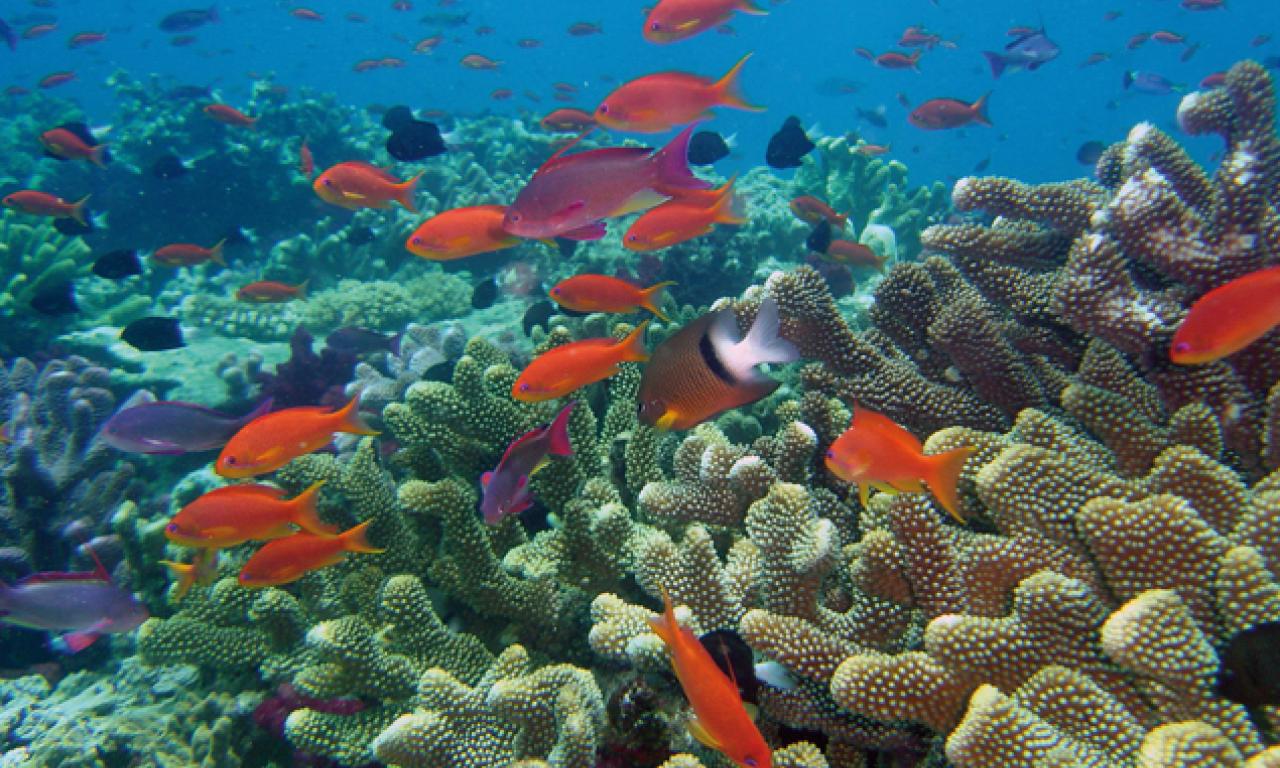
This commentary was written and posted at http://t.co/Pj33Ihi0 in response to an Opinion piece by Roger Bradbury that appeared in the New York Times on July 13th 2012. You can find the original opinion article at http://nyti.ms/SsXfT9. Roger Bradbury's apocalyptic vision for certain death of the worlds coral reefs clearly runs contrary to the views of the most ecologists. Headline grabbing it may be, but it requires a peculiarly singular view of the evidence to sustain his assertion.
Recommended publications
- Assessing adaptation options for climate change: A guide for coastal communities in the Coral Triangle of the Pacific.
- A framework for understanding climate change impacts on coral reef social-ecological systems
This commentary was written in response to an Opinion piece by Roger Bradbury that appeared in the New York Times on July 13th 2012.
Roger Bradbury's apocalyptic vision for certain death of the worlds coral reefs clearly runs contrary to the views of the most ecologists. Headline grabbing it may be, but it requires a peculiarly singular view of the evidence to sustain his assertion.
Yet, while Bradbury is almost certainly wrong on the science, he is right about one thing: we place undue emphasis on research to predict the future of reef ecosystems. Interesting as this research is, its importance pales compared to the work needed to help reef dependent countries, regions and communities build their capacity to adapt to any shock or pressure that might affect them in the coming decades.
It is here that research effort needs to focus. In essence, it matters not whether it is reef degradation, over-fishing, urbanization, youth unemployment, global financial crises, or natural disasters - the need for well functioning institutions, an empowered citizenry and a resilient adaptable economy is the same. Armed with such capability, societies can contemplate a range of possible futures and adapt effectively to evolving circumstances.
Achieving this state for most reef-dependent places is hard because they remain poor, vulnerable and marginalized. We desperately need a new kind of science to help. One that spans disciplinary boundaries (especially between the social and ecological sciences) and embeds researchers much more intimately in development processes. One that see researchers thinking with those that need them rather than for them, so that together they can both, help make development happen, and learn how to do it better.
Sadly, researchers and research institutions with this kind of "Research in Development" mindset and focus are thin on the ground. Until funding agencies re-prioritize and universities start training a new generation of scientists they will remain so. In the meantime, we would do well to focus less on what the "truth" is for coral reef futures and more on what we need to do if Bradbury is right. Whether he is not, it will be effort well spent.